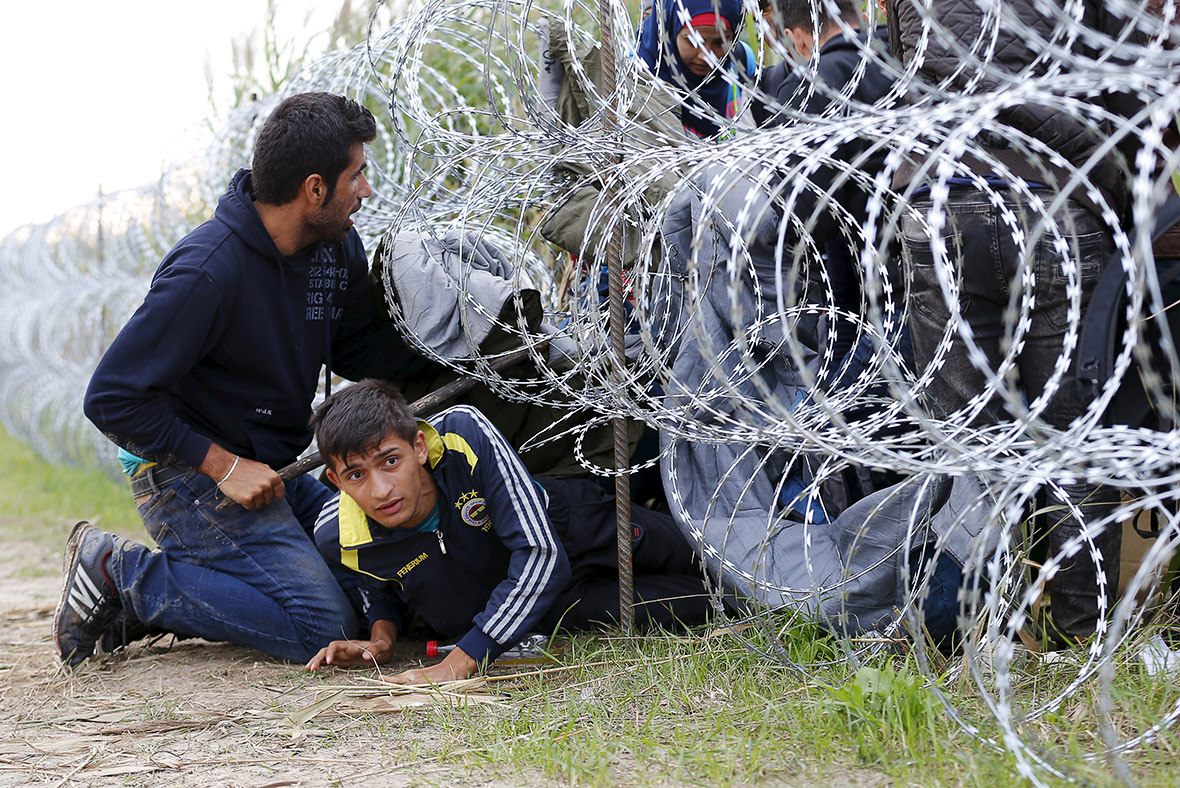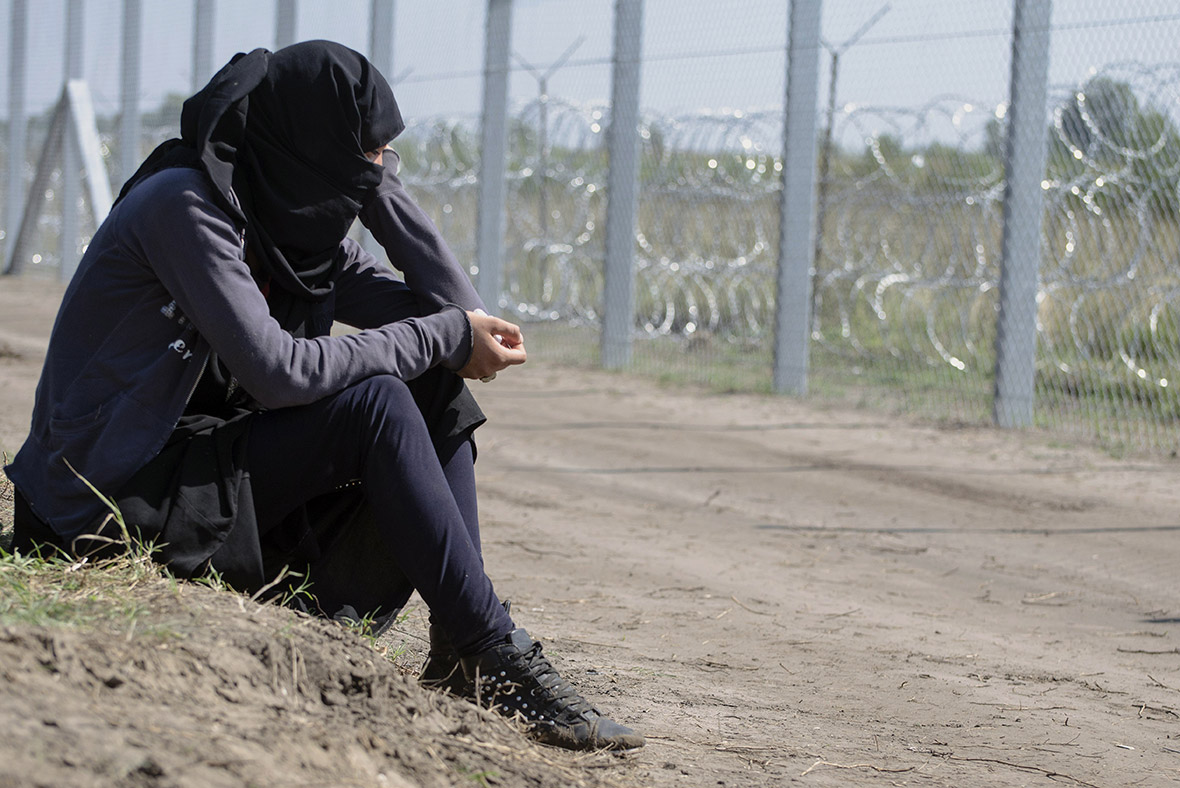Migrant crisis: Syrian refugees squeeze under razor wire fence into Hungary and the EU [Photo report]
Thousands of migrants, many of them refugees from Syria, have hit Hungary's southern border, passing into the European Union through gaps in an unfinished barrier. Fleeing war and poverty, they squeezed under coils of barbed wire strung out along Hungary's 175km (109-mile) frontier with Serbia.



The Hungarian army is building a more secure border fence to keep them out. The fence is finished in parts, while in other places there are coils of barbed wire easily negotiated by migrants. As seen in these photos, one family of Kurds from Syria waited patiently for an army truck to pass, before one by one they scaled a padlocked gate in the fence, disappearing down a dirt road the other side.


Reuters interviewed Hassan, a 30-year-old IT engineer from Syria who was carrying his young nephew on his back. The boy's head was bandaged after being cut by razor wire as they tried to cross into the visa-free part of the European Union from Serbia.
The three-year-old had stood up as they crawled through the razor wire barrier. They turned back, but, like thousands of others, found another way in: an opening in the fence where a nearly-defunct railway line crosses the border.
"We have skills, we can survive anywhere," Hassan said. "We don't just come to Europe to eat and sleep. We're looking for safety. It's better to walk across half of Europe than to stay in Syria."

This year, more than 100,000 migrants have entered Hungary, part of Europe's Schengen zone of passport-free travel. The influx reached its highest daily rate on Monday – 2,093. More are on their way: around 8,000 are making their way through Serbia and 3,000 people are crossing from Greece into Macedonia every day.
A record 50,000 people, many of them Syrians, reached Greek shores by boat from Turkey in July. Greece is ferrying them from overwhelmed islands to the mainland, from where they head north to Macedonia and points beyond. Macedonia sealed its border, but gave up in the face of huge and determined crowds. Macedonia and Serbia are now moving them on as fast as they can. The Lasta bus company in Belgrade said it had increased its daily departures to the northern Serbian town of Subotica near the Hungarian border from seven to 24.




The United Nations refugee agency, UNHCR, warned against expecting numbers to fall any time soon. "We do not see any end to the flow of people to come in the coming months," said a spokeswoman.
Construction crews are racing to complete the more substantial 3.5-metre-high fence along the entire length of Hungary's border with Serbia.
The European Commission has made clear its disapproval of the Hungarian fence, with its Cold War echoes in ex-Communist eastern Europe, but Hungary faces no sanction for building it. Hungary has demanded more money from the EU to alleviate the burden, saying the distribution of funds is "humiliating".




"If we do not take meaningful steps, we will become a lifeboat that sinks beneath the weight of those clinging onto it," Janos Lazar, the chief of staff of Hungary's right-wing prime minister, Viktor Orban, told the daily Magyar Hirlap newspaper, in what appeared to be a reference to the deaths of over 2,000 migrants this year trying to reach Europe on overcrowded boats across the Mediterranean.
Critics point out that the vast majority of migrants who enter Hungary do not linger, determined to reach countries like Austria, Germany and Sweden where they reunite with relatives and friends in search of work and security.





Orban takes a harder line than other EU leaders, saying such an influx carries risks of terrorism, crime and unemployment. Hungary's government has discussed how the army could be used to help secure the country's southern border.
© Copyright IBTimes 2025. All rights reserved.




















